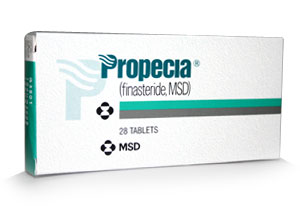Hair Loss Medication for Hair Growth
The Benefits Of Re-Growth Medications
MANY PATIENTS USE RE-GROWTH MEDICATIONS AS PART OF THEIR TREATMENT
Finasteride (Brand Name Propecia™)
 Finasteride taken daily, is one of the recommended medication for hair growth for consideration by patients who still have some significant hair remaining on their scalp. This medication for hair loss can slow or stop the balding process, and even enhance the existing fullness. Younger patients who lose their hair more quickly in their 20’s and 30′s are usually strongly encouraged to consider Finasteride as a hair loss medication as part of their treatment program.*
Finasteride taken daily, is one of the recommended medication for hair growth for consideration by patients who still have some significant hair remaining on their scalp. This medication for hair loss can slow or stop the balding process, and even enhance the existing fullness. Younger patients who lose their hair more quickly in their 20’s and 30′s are usually strongly encouraged to consider Finasteride as a hair loss medication as part of their treatment program.*
Patients over 40, whose hair loss is more stable, may still consider using Finasteride as one of the leading hair growth medications in conjunction with hair transplantation. Results have indicated that Finasteride can help to maintain and improve the look and thickness of the existing hair in the balding areas and an important part of the Hair Restoration treatment plan.
*Individual results may vary – see Disclaimer for more information.
Finasteride FAQ
Who should use Finasteride?
Finasteride is used for the treatment of MALE (only) pattern hair loss. It is a hair growth drug for men that targets the vertex and the anterior mid-scalp area. Finasteride/Propecia is for use by MEN ONLY and should NOT be used by women or children.
What is male pattern hair loss?
Male pattern hair loss is a common condition in which men experience thinning of the hair on the scalp. Often, this results in a receding hairline and/or balding on the top of the head. These changes typically begin gradually in men in their 20s. We believe male pattern hair loss is hereditary and is dependent on hormonal effects. This type of hair loss is described as Androgenetic Alopecia and can be successfully treated with a hair loss medication.
Will Finasteride work for me?
For most men, the hair loss medication Finasteride increases the number of scalp hairs in the first year of treatment, helping to fill in thin or balding areas of the scalp. In addition, men taking Finasteride often note a slowing of hair loss. Although results will vary, generally you will not be able to grow back all of the hair you have lost.
Male pattern hair loss occurs gradually over time. On average, healthy hair grows only about half an inch each month. Therefore, it will take time to see any effect.
You may need to take Finasteride daily for six months or more before you see a benefit. Finasteride can only be effective when taken over the long term. If you are not seeing results after 12 months of taking Finasteride as a hair growth pill, further treatment is unlikely to be of benefit. If you stop taking Finasteride, you will likely lose the hair you have gained within 12 months of stopping treatment.
Finasteride is not effective in the treatment of hair loss due to Andro-Genetic Alopecia in postmenopausal women.
Finasteride should never be taken by women.
Possible side effects of Finasteride?
Like all prescription products and hair growth pills, Finasteride may cause side effects. In clinical studies, side effects from Finasteride were uncommon and did not affect most men. A small number of men experienced certain sexual side effects.
These men reported one or more of the following: less desire for sex; difficulty in achieving an erection; and, a decrease in the amount of semen. Each of these side effects occurred in less than 2% of men. These side effects went away in men who stopped taking Finasteride. They also disappeared in most men who continued taking finasteride.
GOOD NEWS!
Recent studies have also shown that Finasteride may also reduce the risk of prostate enlargement and cancer. In addition to enhancing and maintaining thinning scalp hair in males, Finasteride can shrink the prostate gland and reduce the risk of enlargement. Recent medical studies are showing that the risk of prostate cancer drops by about 25% among men taking Finasteride.*
Finasteride is a hair loss medication that is available from a dispensing physician or pharmacy by prescription only. Finasteride can be taken only by men, and is of no benefit to women, and could be harmful to a developing male fetus if consumed by a pregnant woman.
Results of clinical studies:
For 12 months, doctors studied over 1800 men aged 18 to 41 with mild to moderate amounts of ongoing hair loss. Of these men, approximately 1200 with hair loss at the top of the head participated in additional extension studies, resulting in a total study time of up to five years. In general, men who took Finasteride maintained or increased the number of visible scalp hairs and noticed improvement in their hair in the first year. Improvement, compared to the start of the study, was maintained through the remaining years of treatment. Hair counts in men who did not take Finasteride continued to decrease.*
In one study, patients were questioned on the growth of body hair. Finasteride did not appear to affect hair in places other than the scalp.
Find Out if Finasteride is Right For You.
Minoxidil (Brand Name Rogaine™)
 Minoxidil 2% is the only re-growth medication that is indicated for women (but not during pregnancy or lactation), and is also recommended for men over 18. Taken twice daily as a topical solution, minoxidil is used on the scalp, especially for crown baldness, to assist in the re-growth and maintenance of existing balding hair. For men, minoxidil 5% can be twice as effective, but may also have more side effects.
Minoxidil 2% is the only re-growth medication that is indicated for women (but not during pregnancy or lactation), and is also recommended for men over 18. Taken twice daily as a topical solution, minoxidil is used on the scalp, especially for crown baldness, to assist in the re-growth and maintenance of existing balding hair. For men, minoxidil 5% can be twice as effective, but may also have more side effects.
While this medication can be very effective the original research on minoxidil reported that after 12 months, 8% of males had dense re-growth, 40 % moderate re-growth, 36 % minimal re-growth, with 16% showing no benefit.
It must be applied to the thinning scalp twice daily. This treatment requires a highly motivated patient. Minoxidil or Rogaine must be used regularly and as directed in order to effectively treat hair loss.
*Individual results may vary – see Disclaimer for more information.
FDA Approved Hair Growth Medication
More common side effects of topical Minoxidil include scalp flaking (dandruff), itching, redness and irritation in about 15% of patients. This often leads to discontinuation of the product.
Minoxidil does not work for everyone, and a trial of 6 months to 1 year is recommended to see if it is beneficial for you.
Both men and women can use minoxidil, but women should begin with the 2% formulation, and discontinue its use when pregnant or breast feeding.
Contact Us to Find out More About Hair Loss Medications.
